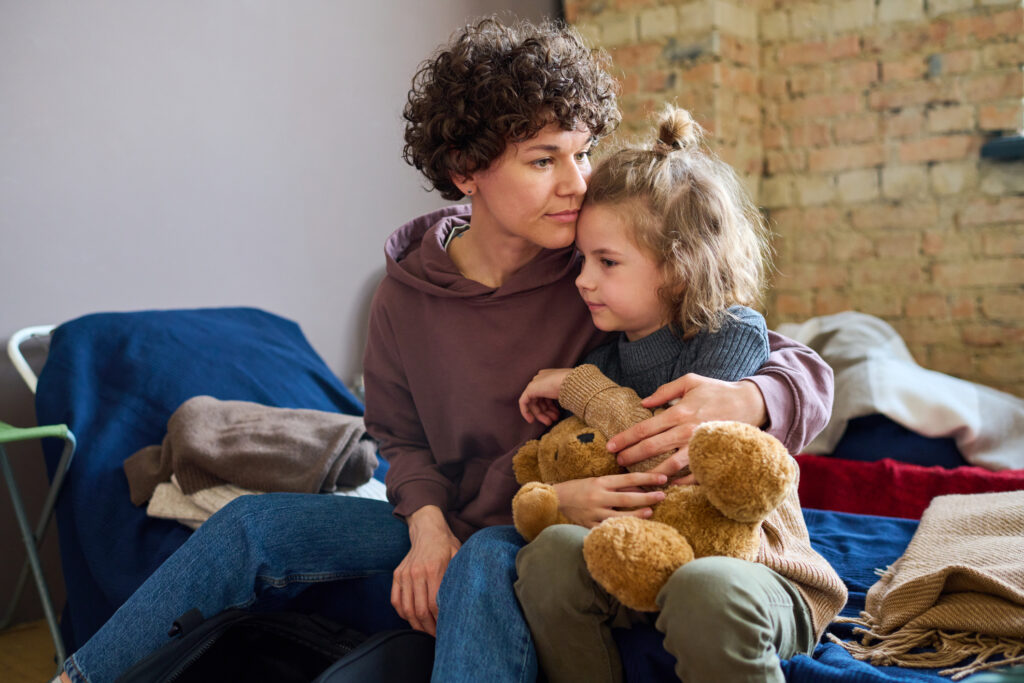If you are in the United States and are eligible for VAWA, you may be wondering if you can bring your children who are living outside the United States through your VAWA petition. In this article we will go over what is VAWA, who is eligible for VAWA, the VAWA requirements and the process for bringing your children to the United States through your VAWA petition.
If you need an immigration lawyer in Miami or anywhere in the United States to help with your VAWA case, Gonzalez Concepcion Law can help you wherever you are located through virtual consultation and legal representation.
What is VAWA?
The Violence Against Women Protection Act (VAWA) was enacted in 1994 to provide protection and resources for victims of domestic violence, sexual assault, and other forms of abuse. The Act has been reauthorized multiple times, with expansions to include additional protections and services. VAWA benefits women, but it is also applicable to men and children who are victims of domestic violence.
Who can benefit from VAWA?
VAWA provides protection and benefits to:
- Spouses and former spouses of U.S. citizens or lawful permanent residents (LPRs) who are victims of domestic violence.
- Children of abusive U.S. citizens or LPRs.
- Parents of abusive U.S. citizen children.
What are the eligibility requirements for VAWA?
- Spouses, children, and parents of abusive U.S. citizens or LPRs must show that they have been subjected to battery or extreme cruelty by their U.S. citizen or LPR family member.
- Applicants must demonstrate that the abuse took place during the relationship and that they have resided with the abuser.
- Relationship to abuser:
- Spouses and former spouses: Must prove marriage to a U.S. citizen or LPR.
- Children: Must demonstrate their relationship to an abusive parent who is a U.S. citizen or LPR.
- Parents: Must show their abusive child is a U.S. citizen.
- Battery or Extreme Cruelty:
- The applicant must have been subjected to physical abuse or extreme cruelty.
- Good Moral Character:
- The applicant must demonstrate good moral character.
- Marriage in Good Faith:
- For spouses and former spouses of U.S. citizens or LPRs, the marriage must have been entered in good faith and not for immigration benefits.
Types of Evidence for VAWA
- Personal Statements: Detailed affidavits describing the abuse.
- Official Documents: Police reports, medical records, court records, marriage certificate, birth certificates.
- Third-Party Statements: Affidavits from family, friends, social workers, or counselors.
- Physical Evidence: Photographs, medical records, and other physical documentation of abuse, documentation of good faith marriage.
Deadlines and Processing Time
- Application Deadlines: Generally there are no specific deadlines to apply for VAWA, however divorced spouses of U.S. citizens or LPRs MUST file the VAWA petition within two years of the divorce and must not have remarried prior to filing the VAWA petition or during the processing of the petition.
- Processing Time: Processing times vary and are based on individual case circumstances and USCIS workload. As of July 2024, VAWA petitions are taking approximately 40 months to process according to the USCIS website. You can access general processing time information through the USCIS tool here: https://egov.uscis.gov/processing-times/ .
Next Steps for Obtaining a Green Card Through VAWA
- Approval of VAWA Petition:
- Once the VAWA petition is approved, the applicant can apply for adjustment of status to obtain a green card.
- Filing Form I-485 with supporting documents:
- The applicant must file Form I-485 (Application to Register Permanent Residence or Adjust Status).
- If the applicant has a qualifying relationship to a U.S. citizen they may be able to file the VAWA and the I-485 concurrently.
- Biometrics Appointment:
- Attend a biometrics appointment for fingerprinting and background check.
- Interview:
- Attend an interview with USCIS if required. This may be waived in some cases.
- Approval and Green Card Issuance:
- Upon approval, the applicant will receive their green card, granting them lawful permanent residence in the United States.
Children As Derivatives of the Applicant’s VAWA Petition
Minor Children Can be included in the principal applicant’s VAWA petition. They will be protected under the same provisions as the principal applicant. To qualify as derivatives, children must be unmarried, less than 21 years old, and otherwise qualify as the self-petitioner’s child. The Applicant must provide evidence of their parental relationship to their minor children.
Minor children residing outside the United States can be included as derivatives of the principal applicant’s VAWA petition. A VAWA applicant can bring their minor children to the United States through their VAWA petition, by filing a follow to join request. This request can be made with the applicant’s I-485 filing or upon approval of the applicant’s I-485.
A child accompanying or following-to-join a self-petitioning spouse may be accorded the same preference and priority date as the self-petitioner without the necessity of a separate petition, if the child has not been classified as an immigrant based on his or her own self-petition. It is important to consult with a qualified immigration attorney for further details about the requirements.
Conclusion
The Violence Against Women Protection Act (VAWA) provides critical protections and a pathway to lawful permanent residence for victims of domestic abuse. The application process requires careful documentation of abuse, proof of relationship, and evidence of good moral character. With approval, applicants can proceed to adjust their status and secure a green card, enabling them to build a safer and more stable life in the United States.
VAWA is a complex process that requires extensive documentation. It is important to consult with a qualified immigration attorney to ensure you meet the requirements. An immigration attorney can guide you through the process, help you avoid costly mistakes and prepare a strong case to ensure you have the best chance of approval.
If you need an immigration lawyer in Miami or anywhere in the United States to help with your VAWA case, Gonzalez Concepcion Law can help you wherever you are located through virtual consultation and legal representation. We make it easy for you to get started wherever you are.
Sources
- 8 CFR 204.2(i)(1)(iv)
- 8 CFR 204.2(c)(4)
- INA 204(a)(1)(A)(iii)(ii)(aa)(CC)(ccc)
- INA 204(a)(1)(B)(ii)(II)(aa)(CC)(bbb)
- 9 FAM 502.1-1(C)(2)
- U.S. Citizenship and Immigration Services (USCIS). Green card for VAWA self-petitioner. USCIS.https://www.uscis.gov/green-card/green-card-eligibility/green-card-for-vawa-self-petitioner
- The National Domestic Violence Hotline. “VAWA Self-Petitioning Process.” The Hotline.
- American Immigration Council. “The Violence Against Women Act (VAWA) Provides Protections for Immigrant Women and Victims of Crime.” American Immigration Council.
- National Immigrant Women’s Advocacy Project (NIWAP). “VAWA Self-Petitioning.” NIWAP

